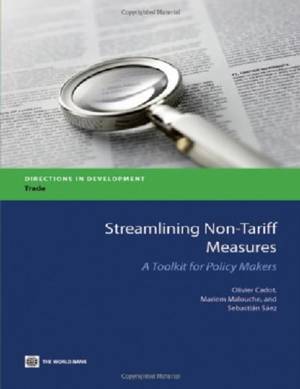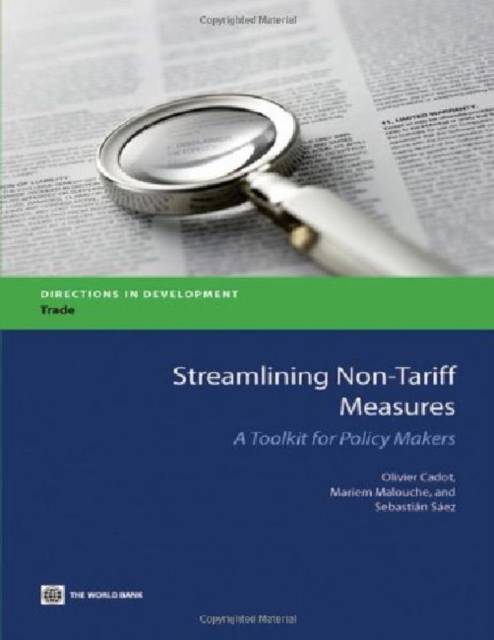
- Retrait gratuit dans votre magasin Club
- 7.000.000 titres dans notre catalogue
- Payer en toute sécurité
- Toujours un magasin près de chez vous
- Retrait gratuit dans votre magasin Club
- 7.000.0000 titres dans notre catalogue
- Payer en toute sécurité
- Toujours un magasin près de chez vous
44,45 €
+ 88 points
Description
"This toolkit provides a novel approach and a set of tools that allow policymakers and analysts to identify non-tariff measures (NTMs), assess their trade restrictiveness and impact on prices and welfare, and to strengthen the institutional coordination mechanism, transparency, and regulatory governance on NTMs. It also aims at encouraging economies to increasingly address the NTM agenda from a domestic competitiveness and/or poverty perspective rather than from a mercantilist standpoint of concessions to trading partners.NTMs are policy measures, other than ordinary customs tariffs, that can potentially have an economic effect on international trade in goods, changing quantities traded, or prices or both. While most NTMs are already subject to WTO disciplines, the main challenge is to allow governments to address public policy concerns without unnecessarily hurting trade competitiveness and while preventing disguised protectionism.
Spécifications
Parties prenantes
- Auteur(s) :
- Editeur:
Contenu
- Nombre de pages :
- 208
- Langue:
- Anglais
- Collection :
Caractéristiques
- EAN:
- 9780821395103
- Date de parution :
- 08-05-12
- Format:
- Livre broché
- Format numérique:
- Trade paperback (VS)
- Dimensions :
- 152 mm x 229 mm
- Poids :
- 285 g

Les avis
Nous publions uniquement les avis qui respectent les conditions requises. Consultez nos conditions pour les avis.






